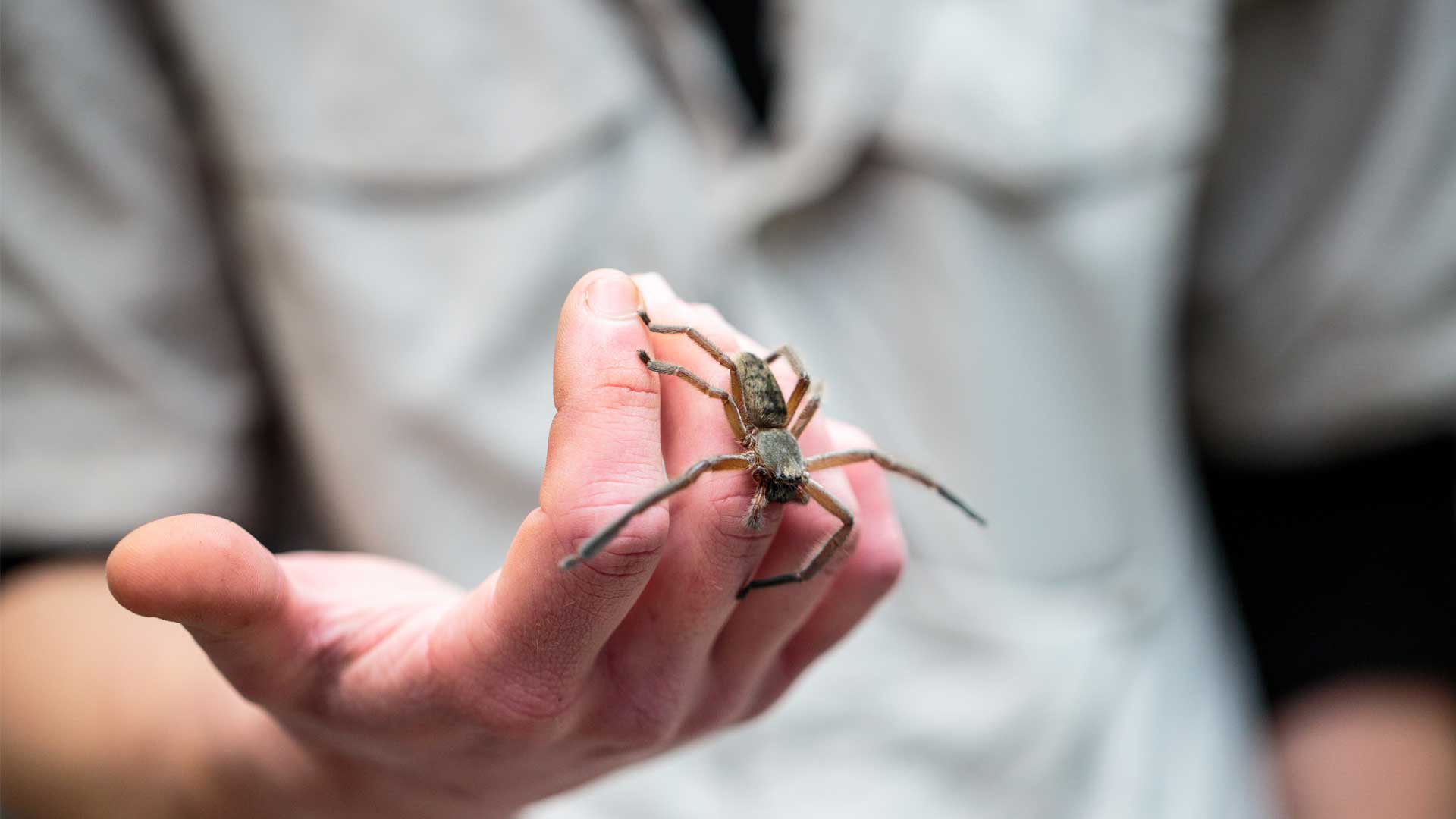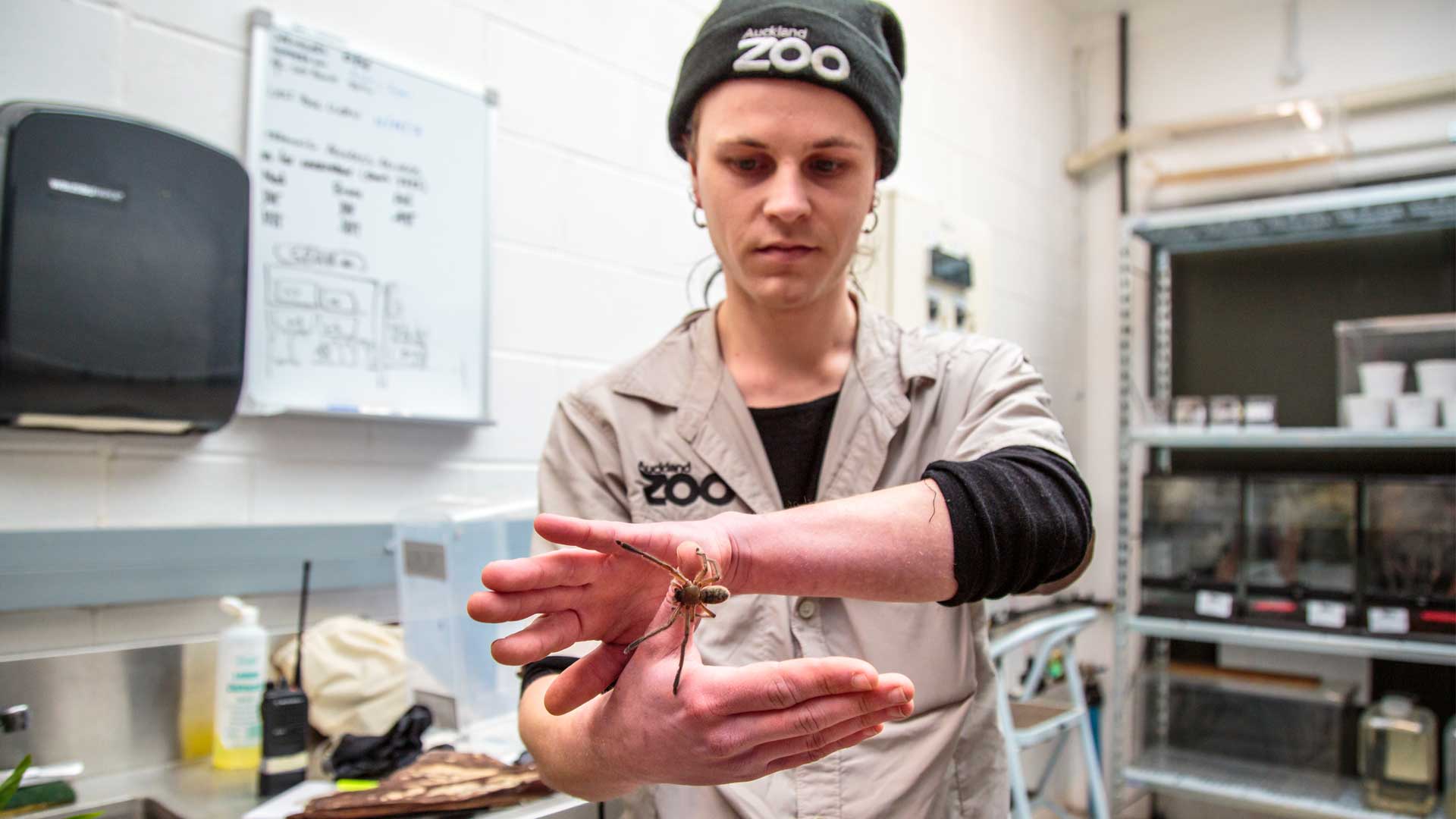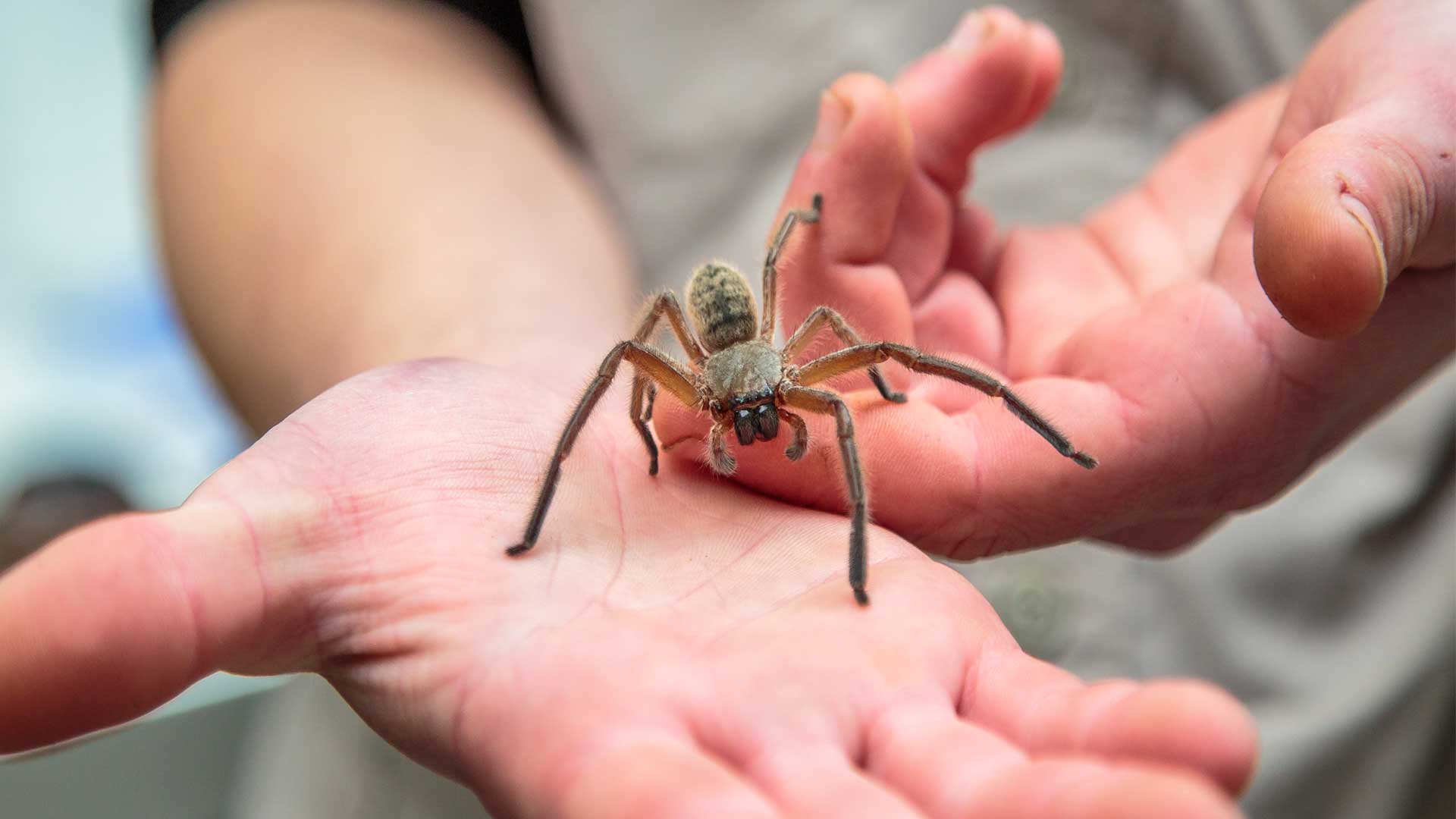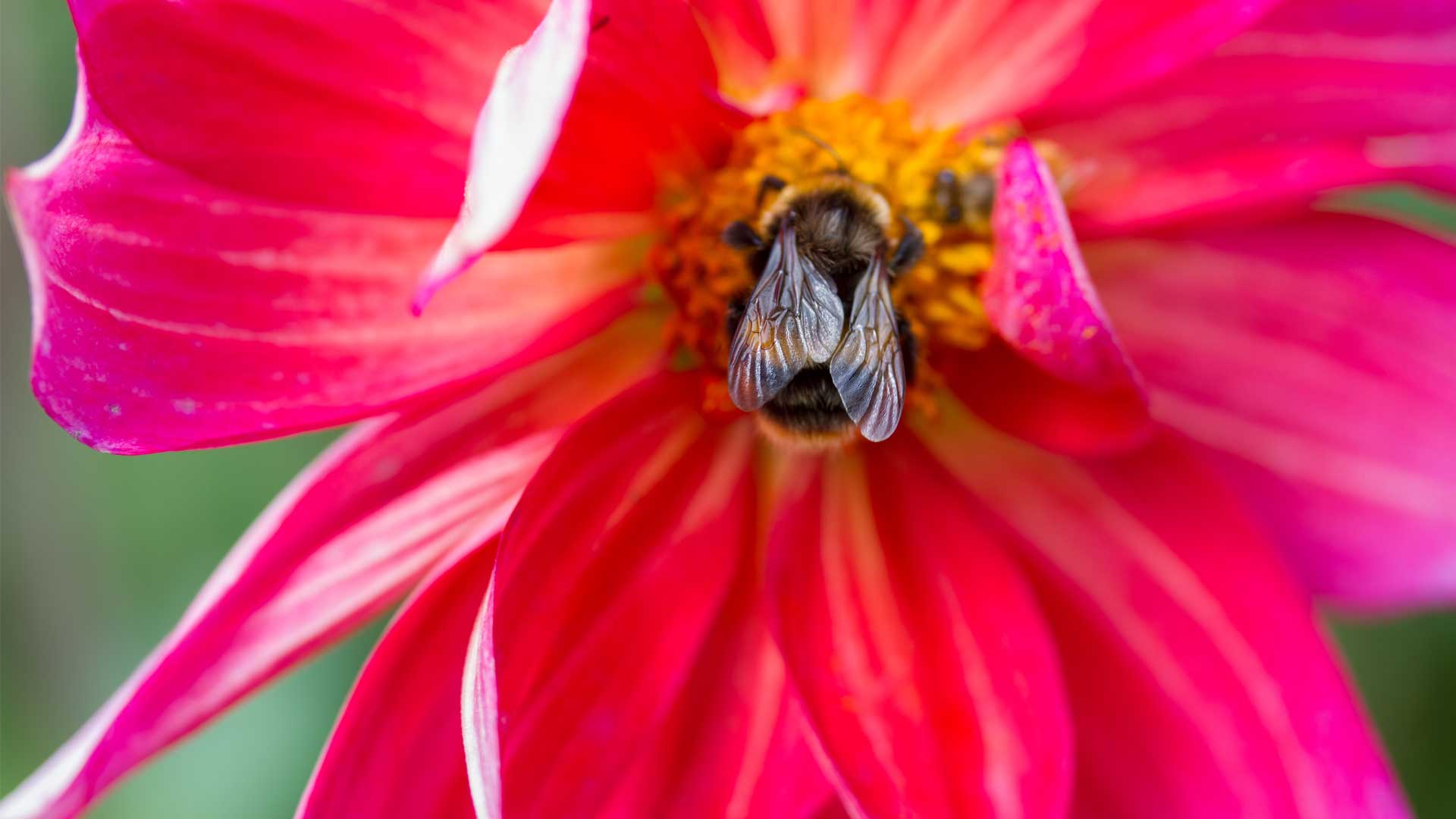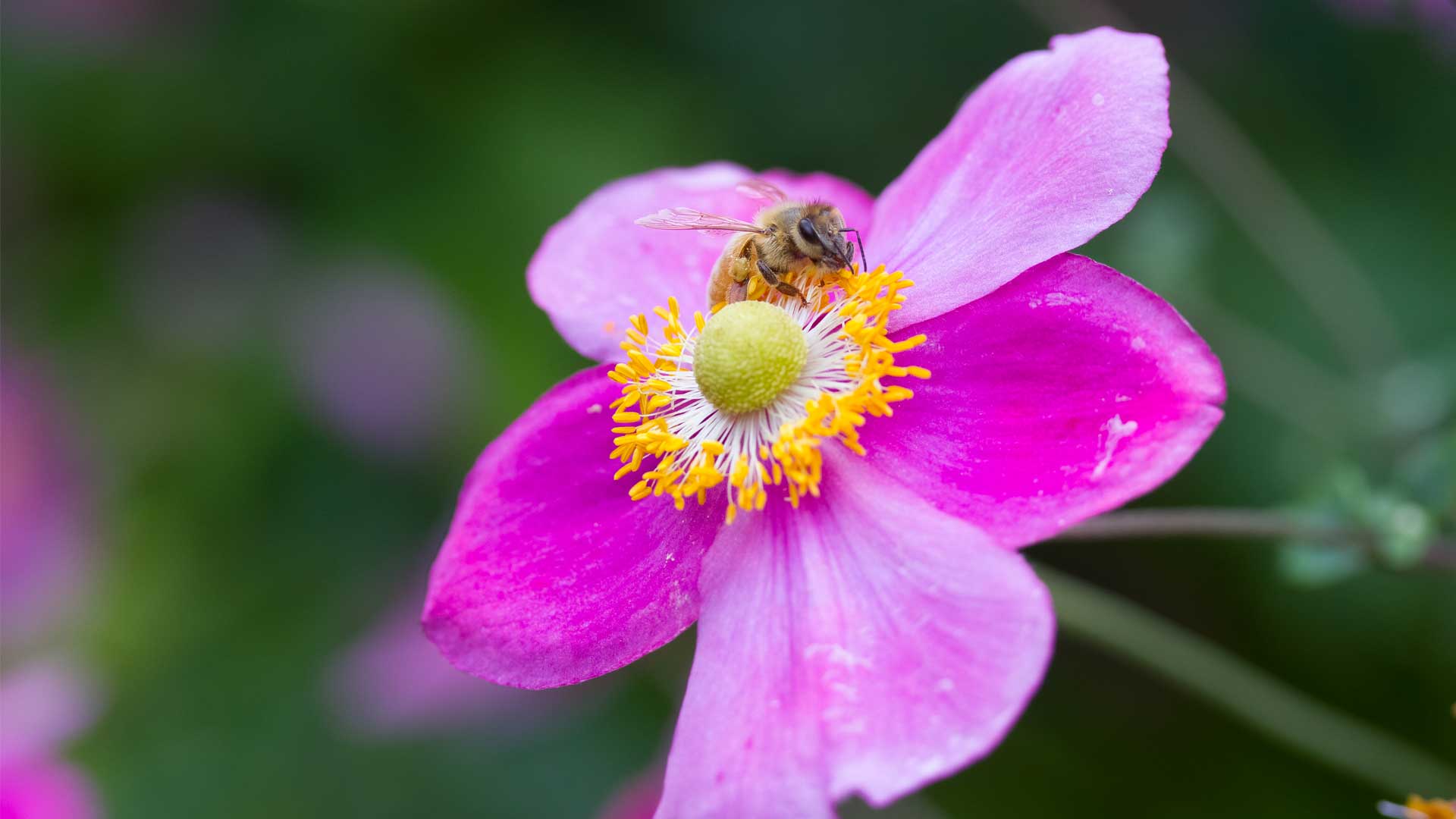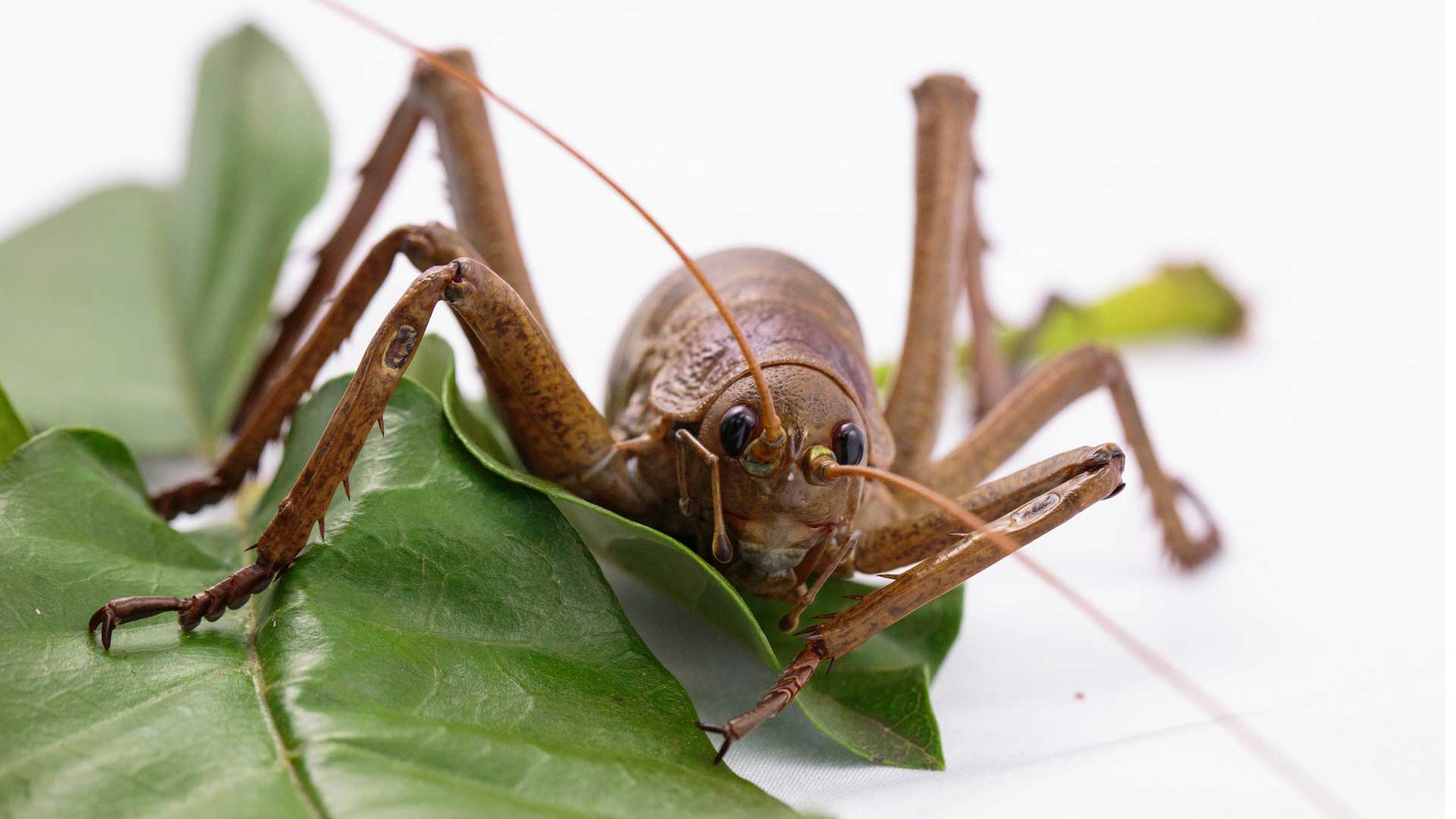The world’s natural environment is the most important and irreplaceable resource we have. Our minds may cast to dreams of a big, blue, and beautiful plastic-free ocean, or lush rainforests full of mammals no longer under threat from habitat loss – all really significant things! But what about the importance of biodiversity, and protecting land and all the mini ecosystems it contains for insects native to New Zealand? Some scientists believe if insects were to disappear from the earth, all life on earth would end 50 years later. We rely on these not so popular specimens for our own longevity – so who is speaking up for these invertebrates?
Ben Goodwin is Auckland Zoo’s very own insect advocate and a lifelong zealous environmentalist. In his nine years at the zoo, Ben has witnessed the massive shift Auckland Zoo has made in building an impressive collection of ectotherms, and also observed conservationists making more of an effort to include invertebrates in their important work. But still, more must be done.



